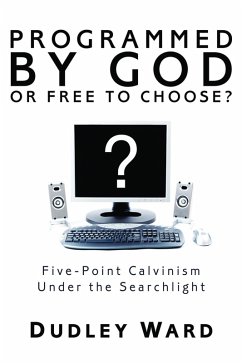Just two words: "But God..." Understand their use in Scripture and you'll never be the same.
Whether from the pen of Moses, Paul, or other biblical authors, "But God" appears in various forms hundreds of times in the Bible. To understand these two words as they are used in Scripture is to understand the gospel. This book focuses on nine of the most important appearances of this key phrase, drawing in numerous other passages of Scripture and in the process unfolding the magnificent drama of God's sovereign grace-from his mercy on Noah to our security in a resurrected Savior. James Montgomery Boice wrote, "May I put it quite simply? If you understand those two words-'but God'-they will save your soul. If you recall them daily and live by them, they will transform your life completely." Boice was right. To the left of "But God" in Scripture appear some of the worst human atrocities, characterized by disobedience and rebellion. To the left of "But God" is hopelessness, darkness, and death. But to its right, following "But God," readers of Scripture will find hope, light, and life. Following God's intervention, the story of Scripture becomes one of grace, righteousness, and justice. In fact, this phrase is used to describe God's activity in nearly every great salvation story in the Bible. It is the perfect phrase for highlighting God's grace against the dark backdrop of human sin. "But God" marks God's relentless, merciful interventions in human history. It teaches us that God does not wait for us to bring ourselves to him, but that he acts first to bring about our good. It also teaches us of the potential consequences if God were not to act. Scripture shows over and over that without God's intervening grace, without the "But God" statements in the Bible, the world would be completely lost in sin and under judgment. May the reading of this book, and of the biblical "But God" statements it contains, cause you to understand these two words, recall them regularly, and allow them to transform your understanding of God's grace and thus transform your very life.
Whether from the pen of Moses, Paul, or other biblical authors, "But God" appears in various forms hundreds of times in the Bible. To understand these two words as they are used in Scripture is to understand the gospel. This book focuses on nine of the most important appearances of this key phrase, drawing in numerous other passages of Scripture and in the process unfolding the magnificent drama of God's sovereign grace-from his mercy on Noah to our security in a resurrected Savior. James Montgomery Boice wrote, "May I put it quite simply? If you understand those two words-'but God'-they will save your soul. If you recall them daily and live by them, they will transform your life completely." Boice was right. To the left of "But God" in Scripture appear some of the worst human atrocities, characterized by disobedience and rebellion. To the left of "But God" is hopelessness, darkness, and death. But to its right, following "But God," readers of Scripture will find hope, light, and life. Following God's intervention, the story of Scripture becomes one of grace, righteousness, and justice. In fact, this phrase is used to describe God's activity in nearly every great salvation story in the Bible. It is the perfect phrase for highlighting God's grace against the dark backdrop of human sin. "But God" marks God's relentless, merciful interventions in human history. It teaches us that God does not wait for us to bring ourselves to him, but that he acts first to bring about our good. It also teaches us of the potential consequences if God were not to act. Scripture shows over and over that without God's intervening grace, without the "But God" statements in the Bible, the world would be completely lost in sin and under judgment. May the reading of this book, and of the biblical "But God" statements it contains, cause you to understand these two words, recall them regularly, and allow them to transform your understanding of God's grace and thus transform your very life.
Dieser Download kann aus rechtlichen Gründen nur mit Rechnungsadresse in A, D ausgeliefert werden.









